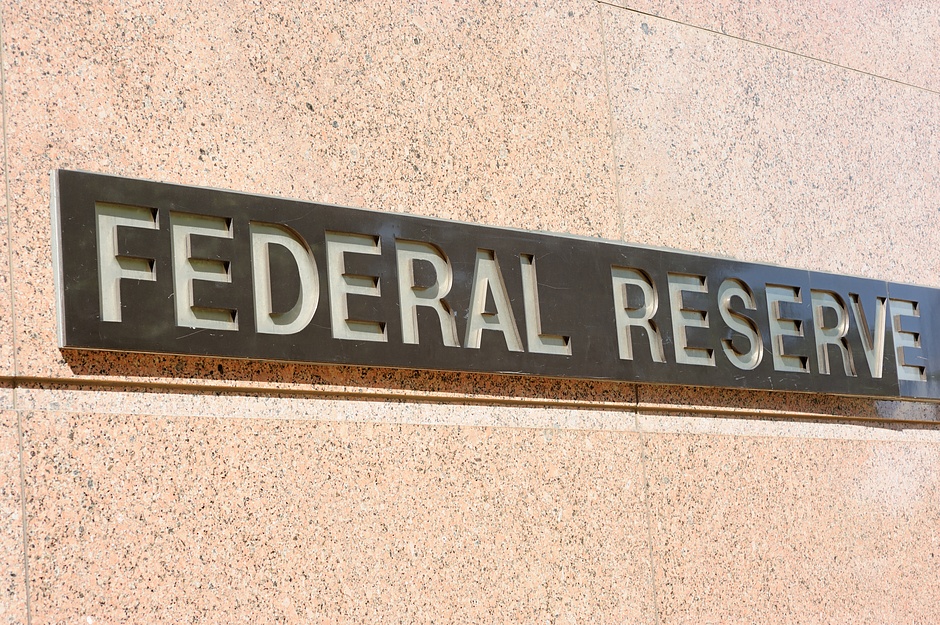Markets are Fed-dependent as ever, reaction to elections could surprise – Interview with Lior Cohen

While the reaction to the Federal Reserve's paradigm shift may have been relatively muted, stock markets heavily dependent on central bank support. Dr. Lior Cohen discusses the impact of the Fed, what data could trigger short-term corrections and other topics in a wide-ranging interview with Yohay Elam. Regarding equities' reaction to election results, his scenarios are surprising and thought-provoking.
Yohay Elam: So, in our previous interview you emphasized the role of the Federal Reserve in shaping stock markets. We are now talking one day after the Fed announced a major policy shift. Is Powell's announcement a "paradigm shift?" How can it affect markets?
Lior Cohen: It's a major shift in the way the Fed looks at monetary policy, however, it's still unclear how it will come about. This policy shift will likely keep interest rates low for along time, even though, markets already expected interest rates to stay low
Yohay Elam: Inflation is nowhere to be seen
Lior Cohen: It could have had a much bigger impact on markets had they changed this policy back in 2017
Yohay Elam: Would have prevented four hikes in 2018
Lior Cohen: And could have avoided the December 2018 market crash and perhaps the economy could have been even better and stronger until the pandemic. So far markets don't seem too impressed based on the initial reaction in bonds, stocks and USD
Yohay Elam: The Fed already committed to low rates at least through 2022
Lior Cohen: I think it's more important for policy wonks like us than for the markets
Yohay Elam: Powell is "not even thinking about thinking of raising rates." Indeed, at least no short term impact
Lior Cohen: Exactly, he already provided forward guidance to keep rates low so changing the way the Fed thinks of its inflation mandate doesn't change much market expectations at least over the next few years
Yohay Elam: Jumping from 2017-2018 to 2022-2023. Can you imagine a situation where unemployment drops back down to around 5% but inflation picks up? Perhaps that would test the Fed's new policy. Allowing inflation to overheat because the jobless rate is not the pre-pandemic 3.5%
Lior Cohen: While it's unlikely, it's possible, if the trade war continues, it could push up inflationary pressures, but its been decades since the US had inflation well above 3-4% so it doesn't seem likely. I think the whole idea of the Philips curve at least in the developed world should be put to rest and start thinking of a lack of correlation between unemployment and inflation
Yohay Elam: Indeed, the Phillips curve was relevant in a less globalized world
Lior Cohen: But this was one of the concerns of Bernanke not raising the inflation target or changing to an average inflation. The issue has always been that Fed officials and markets forecasters have always overestimated inflation and thought it will reach the 2% anytime now, something that didn't materialize on a sustainable level
Yohay Elam: Indeed, now it seems they are giving up on forecasting. They first want to see the white in inflation's eyes and seeing inflation for longer before thinking of hiking
Lior Cohen: The Fed has turned super-dove, and it only required a global pandemic
Yohay Elam: A minor development
Lior Cohen: Indeed
Yohay Elam: Yellen seems like an uber hawk now
Lior Cohen: And back when Yellen became Fed chair, Bernanke seemed uber hawk, so perhaps progress?!
Yohay Elam: Dovishness has no borders. When we had a chat yesterday immediately after Powell's speech, you noted a difference between reactions in different types of stocks
Lior Cohen: Indeed, I cannot say for certain it was related to Powell, but the Dow stocks rallied while tech stocks mostly remained flat
Yohay Elam: Tech stocks are the future, Dow stocks, not so much
Lior Cohen: Mostly banks, industrial and airline stocks rallied
Yohay Elam: 20th century
Lior Cohen: My guess, it would have to do with the changes in long-term yields. Tech stocks tend to be more sensitive to changes to LT yields than Dow stocks. It's possibly one factor that goes into the uneven rally we saw yesterday in stocks
Yohay Elam: Higher yields, worse for tech stocks?
Lior Cohen: And indeed, US treasuries have been selling off, so I assume not exactly what Powell would have expected. It goes through the discount rate. Higher discount rate, lower valuation, tech stocks' valuation is more linked to future profits, so a small change in discount rate could affect their valuation
Yohay Elam: Great point there. After the dust from the Fed settled, what's next for stocks? Do you think the uptrend will continue?
Lior Cohen: For now, stocks seem to have more room to grow, as long as the Fed provides cover
Yohay Elam: It remains all about the Fed
Lior Cohen: However, it doesn't mean there couldn't be corrections along the way. The development in the pandemic, the approval of the fiscal stimulus. I suspect, regarding the fiscal stimulus approval. If there is no market crash in stocks the republicans won't work with the Dems to approve it, but for now, the markets still price in a resolution
Yohay Elam: The lack of stimulus is probably having an effect on the economy right now
Lior Cohen: So sort of catch 22
Yohay Elam: Indeed, who will blink first
Lior Cohen: We have yet to see much of it in the hard data, only in some soft data (consumer sentiment) but this could soon change
Yohay Elam: Perhaps a depressing NFP? Or retail sales report could trigger a correction. September is often a turbulent month in markets
Lior Cohen: I think another contraction in jobs could instigate such a correction
Yohay Elam: Seeing that minus sign
Lior Cohen: But for now expectations are for another ok report
Yohay Elam: So maybe only in September's figures due out in October. Closer to the election
Lior Cohen: Perhaps we could have a better sense once we see the NFP and retail sales to see any signs of weakness in the economy
Yohay Elam: Indeed. Regarding the elections, Democrats will hold onto the House and Biden will win the popular vote, but there is high uncertainty about the next president, and even more about the Senate. What is markets' preferred scenario in your opinion?
Lior Cohen: Markets cheered when Trump got elected in 2016, and indeed corporations got their tax cuts
Yohay Elam: Also thanks to the Republican sweep. Full control
Lior Cohen: But the trade war with China, the handling of the pandemic were bad for the economy and stocks. I think stocks could be keener to have less chaos in the White House
Yohay Elam: Indeed, and Biden is a centrist
Lior Cohen: And better handling of the pandemic
Yohay Elam: Yeah, it's hard to surpass Trump in mishandling coronavirus
Lior Cohen: From health and economic perspective
Yohay Elam: Biden is leading in the polls
Lior Cohen: And if the R keep the Senate, markets will know that at least the Dems won't reverse the tax cuts
Yohay Elam: So, the current Congress just with a more traditional president would be a welcome outcome
Lior Cohen: Indeed
Yohay Elam: Do you think markets would tank if Dems make a clean sweep?
Lior Cohen: If not for the pandemic there might have been a short term correction. But I think a better handling of the pandemic is more crucial
Yohay Elam: The virus remains the boss
Lior Cohen: So markets will still likely to rally for sure
Yohay Elam: A united government would also have the ability to enact more fiscal stimulus, even if Wall Street would fear regulation and tax hikes
Lior Cohen: Exactly, it's not just about handling the health crisis but also the economic crisis by providing more stimulus
Yohay Elam: Let's also consider a wilder scenario in which there is no clear winner on election night, and it turns from election night to election month with slow counting of mail-in ballots
Lior Cohen: A very likely outcome
Yohay Elam: Could political uncertainty trigger a slide in stocks?
Lior Cohen: I don't think so. I think markets will wait to see the outcome
Yohay Elam: And will only tank if there is a full-blown constitutional crisis?
Lior Cohen: Unless this uncertainty would cause damage to the economy amidst the pandemic. That too, but then the US would have a bigger problem than a market crash
Yohay Elam: Indeed. So, generally speaking, markets are broadly supported by the Fed, with potential short-term corrections triggered by disappointing data or a political crisis. Is that a proper characterization of the state of play?
Lior Cohen: You got it! You are now ready to open your hedge fund
Yohay Elam: Or Robinhood account...
Lior Cohen: Even better
Yohay Elam: Circling back to where we started, the Fed, do you think other central banks will follow its lead? I find it hard to see the Germans signing a document allowing inflation to overheat even a bit
Lior Cohen: Well perhaps not the Germans, but other banks BoJ BoE perhaps
Yohay Elam: For the BOJ it would be mostly an academic exercise...
Lior Cohen: For Japan, it won't change much anyway
Yohay Elam: I think we have covered quite a bit of ground. Any additional comments our readers may be interested in?
Lior Cohen: Indeed we covered the Fed and markets, I think the Fed will remain an important force to shape markets and it's important to follow its action because any policy error or misstep could lead to a swift market correction
Yohay Elam: Powell is ever-powerful. Thank you very much for your time, it was a pleasure and thought-provoking.
Premium
You have reached your limit of 3 free articles for this month.
Start your subscription and get access to all our original articles.
Author

FXStreet Team
FXStreet

















